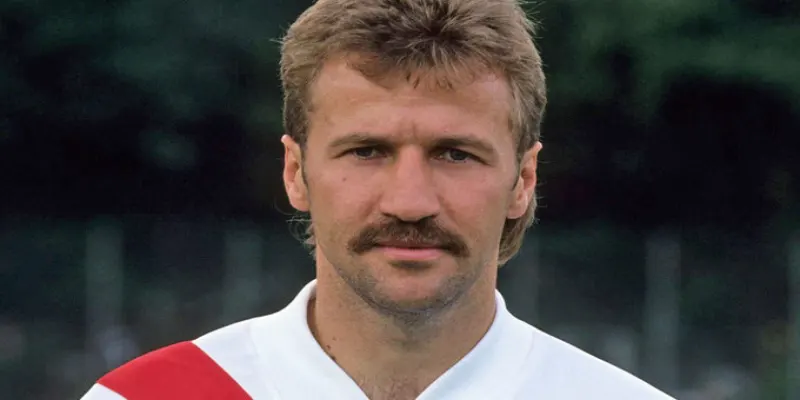
Fritz Walter: Germany's Iconic Footballer
Fritz Walter stands as a timeless legend in German football, revered for his vision, leadership, and unmatched dedication. From club triumphs to lifting a World Cup, his influence shaped generations of players and fans alike. His story isn’t just history—it’s the heart of German football. Learn how kèo nhà cái odds once echoed his era and why his legacy still inspires the sport today.
Fritz Walter: A Football Legend
Fritz Walter’s name is synonymous with football excellence in Germany. His versatility, creativity, and unwavering determination made him a unique talent during his time.
Early Career and Influence
Fritz Walter’s journey began at a young age, nurtured by the burgeoning love for football in post-war Germany. The emphasis on technique and tactical awareness he acquired during his formative years became hallmarks of his playing style.
He often played on the streets and in schoolyards, where he honed his skills. It wasn’t long before his immense potential captured the attention of local scouts, leading him to join 1. FC Kaiserslautern’s youth academy. This was the cradle of his professional career, shaping him into the player he was destined to become.
Triumphs and Challenges
Walter’s early years were marked by challenges as much as triumphs. The political and economic instability in post-war Germany impacted sports, and opportunities were often limited. Yet, this resilient athlete used adversity to fuel his determination. His application on the field was relentless, and soon, he was leading his team both tactically and emotionally.
Fritz’s commitment also inspired teamwork and camaraderie among his peers. The foundations of respect and cooperation laid in his early career became pivotal in his future successes.
Emergence on the National Scene
By the late 1940s, Walter was not only a star player for Kaiserslautern but also began catching the eyes of the German national team selectors. His loyalty to his club and his performance on the field set an exemplary standard, allowing him to become a beacon of hope for German football in the post-war era.
He debuted for the national team in 1940 and became a vital player. His leadership qualities soon saw him assuming the captaincy, where he would inspire a generation.
The Early Life of Fritz Walter
Fritz Walter was born on October 31, 1920, in Kaiserslautern, a town in the Pfalz region of Germany. Growing up in a football-loving household, Fritz’s early life was heavily influenced by the sport and the community.
Family Influence and Early Introductions
From a young age, Fritz was surrounded by football, with his father often taking him to matches and encouraging him to play. The local club, 1. FC Kaiserslautern, became integral to his childhood.
His family promoted the values of discipline and hard work. Such teachings served him well on the pitch, as he navigated through various levels of football, ultimately making it into the senior team.
Community and Sporting Environment
Kaiserslautern was a hotbed of football passion during Fritz’s youth. The atmosphere surrounding his formative years was vibrant, with local clubs competiting fiercely while fostering talent in the community.
Walter thrived in this environment, cherishing the bonds formed with fellow players and supporters. Such grassroots experiences undoubtedly laid the foundation for his character, shaping him into a leader well before he donned the captain’s armband for the national team.
Military Service and Resilience
The onset of World War II interrupted Walter’s burgeoning career. As a young man, he enlisted in the German army and was deployed on multiple fronts, which served as a challenging period in his life. However, his resolve remained unshaken.
Even during the turmoil of war, Walter continued to play football wherever and whenever he could, ensuring the sport remained a significant part of his life. His experiences shaped not just his character but also enhanced his empathy and understanding of human struggles.
Fritz Walter’s Career at 1. FC Kaiserslautern
Walter’s time at 1. FC Kaiserslautern defined his identity as a footballer. His commitment and exemplary performances helped elevate the club to new heights.
Rise through the Ranks
Walter began his professional career with 1. FC Kaiserslautern in 1940. Shortly after, he consistently proved to be an irreplaceable part of the team.
With exceptional tactical awareness and technical prowess, he quickly adapted to the demands of competitive football. Season after season, his contributions grew, carving his name into the annals of the club’s history.
Major Achievements and Milestones
During his tenure with Kaiserslautern, Walter led the team to success in multiple competitions. Some of his most significant achievements include:
- Bundesliga titles
- German Cups
- Being one of the club’s all-time top scorers
These milestones not only recognized his individual brilliance but also highlighted his leadership abilities, motivating his teammates and instilling a winning mentality within the squad.
Relationship with Fans and Community
Walter’s connection with the fans was evident. His dedication on the pitch resonated deeply with supporters, and he became an idol in the local community. His act of giving back—visiting schools, engaging with fans, and supporting local initiatives—further solidified the bond.
He was more than just a player; he was a figure of hope and resilience for the people of Kaiserslautern, often seen as the heart of the club and the city.



